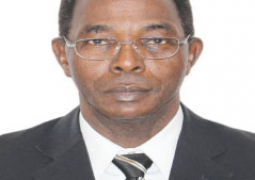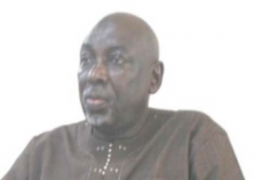
SaHel Knowledge Campus (MindWorks)
Think Tank of Eminent Experts
The socio-economic potential of The Gambia can be harnessed if and only if we progressively and sustainably implement the Vision & Mission as postulated in our National Development Plan and the sector policy strategies in a holistic manner.
There is no gain saying the undeniable fact that The Gambia has elaborated some of the most pioneering and game changing economic development blueprints, regrettably, we are affected by a syndrome I normally refer to as “Policy Inconsistencies and Contradictions.
The Economic Blueprint of The Gambia according to the NDP has eight strategic priorities and strategic priority 5 reads:
“Building our infrastructure and restoring energy services to power our economy (Energy, Transport and Public Works).
We have always advanced the pragmatic solution that accelerated economic transformation has 5 discernible pathways as follows:
- Roadways/ Highways
- Waterways
- Airways
- Railways and
- Information Superhighways (Internet)
The Gambia is the only country naturally divided by River Gambia and we have yet to maximise its majestic opportunities with passenger and cargo transportation from Barra to Basse and more importantly to open up Barra to Banjul Ferry Services to durable public private partnership opportunities and private ferry operations similar to Banjul International Airport as the Gateways to The Gambia. Suffice it to say that Banjul/ Barra has far more passenger and cargo traffic than Banjul International Airport.
The opening up of Banjul Barra Ferry operations from a monopoly position to a liberalised economic environment and regulated under the PURA and GMA respective Acts.
The well-articulated Transport Policy of The Gambia 2018-2027 has the following strategies:-
- analysing potential present and future demand for river transport
- making recommendations concerning all issues that may hamper the potential revival of river transport as a viable commercial activity
- Prepare a time schedule for implementation of the recommendations of the task force, together with a financing plan
- Agree and assign clear responsibilities for implementation of the recommendations, concluded with the signing of a covenant or a contract by all stakeholders
- Review and amend existing laws and regulations concerning river transport
- Establish, in the short term, a Unit responsible for the management of river transport.
In the long term upgrade the Unit to a Directorate within the GPA set up
Consider the transfer of ownership of river transport facilities such as the jetties, to a River Transport Authority or to the private sector Government will promote private sector participation in river transport services and also create a level playing field for all modes of transport specifically to support River transport.
Encourage and support the NFSPMC to extend the use of its fleet of barges, or to lease the barges for the purpose of carrying freight traffic other than groundnuts Review prices paid for infrastructure and facilities by all modes of transport, including social costs;
Ensure that all modes pay equitably for facilities and services and their maintenance, and that no hidden subsidies be made available to any transport modes
Review, and revise as necessary, regulations concerning overloading of vehicles and re-introduce the use of weigh bridges to control overloading of lorries.
Consider financial incentives to promote river transport, such as tax holiday for river transport companies.
Banjul/Barra has handled in the past an annual passengers traffic of 5 million which is out an irregular and an unreliable ferry service inspite of its strategic advantages in terms of it’s close proximity to Dakar, the sub region and Ziguinchor as compared to the Senegambia Bridge.
Opening up this international gateway to Private ferry operators will be a big game changers currently the case with the television media house and telecommunications mobile companies.
A much needed 24hrs ferry service in this international gateway is still a dream deterred by lack of the necessary investments in modern ferries.
In consideration of the foregoing, we encourage the Government to implement its policy prescriptions and turn the vast potential of the Majestic River Gambia into Reality and realise the forward and backward socio economic linkages that would have a TRANSFORMATIONAL IMPACT.
MENTOR - Abdoulie M. Touray (Baax)
Founder/ President
Chartered Institute of Logistics and Transport (CILT)
Founder/ President
SeneGambia Maritime Agency
Founder Chairman/ CEO
SaHel Knowledge Campus




